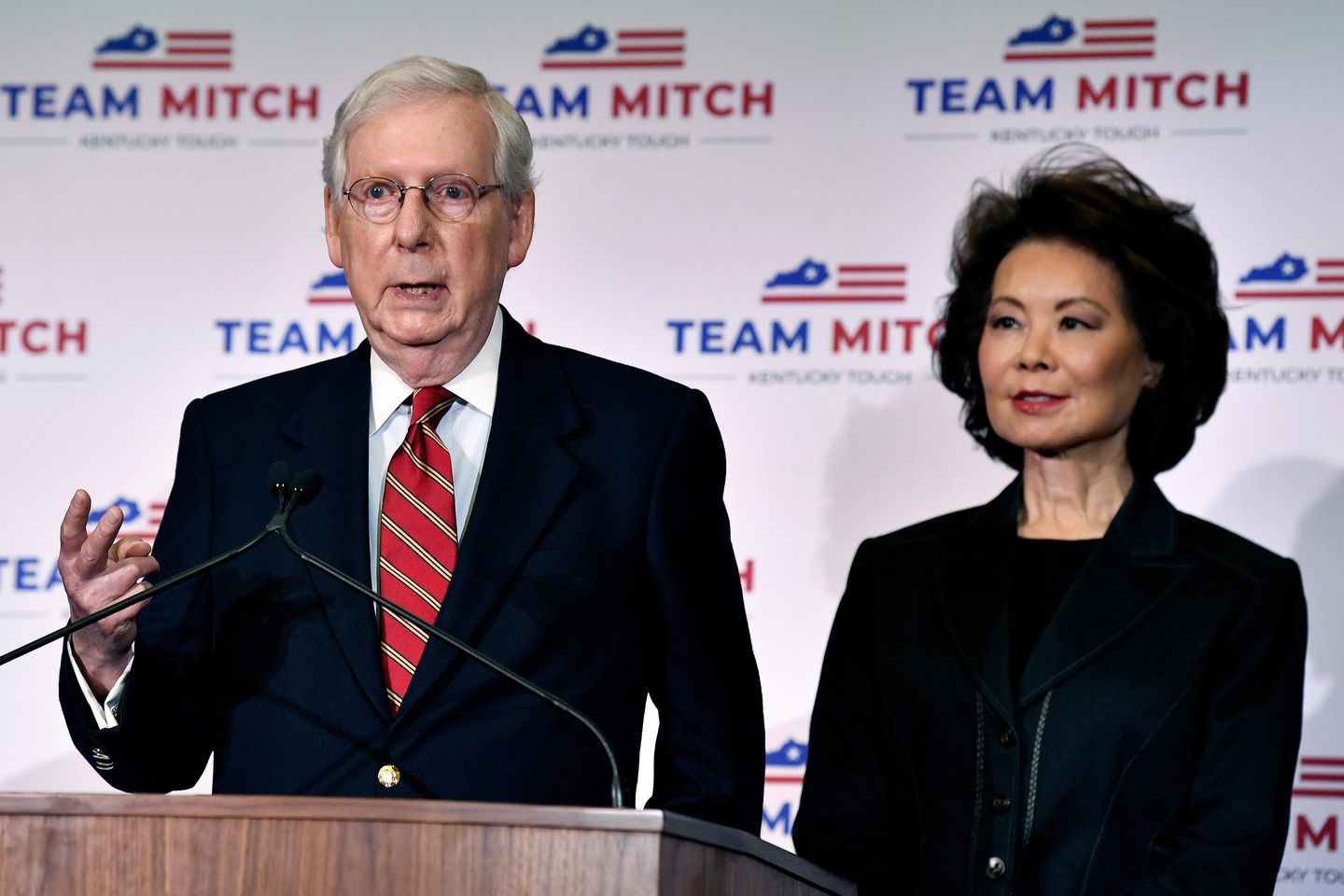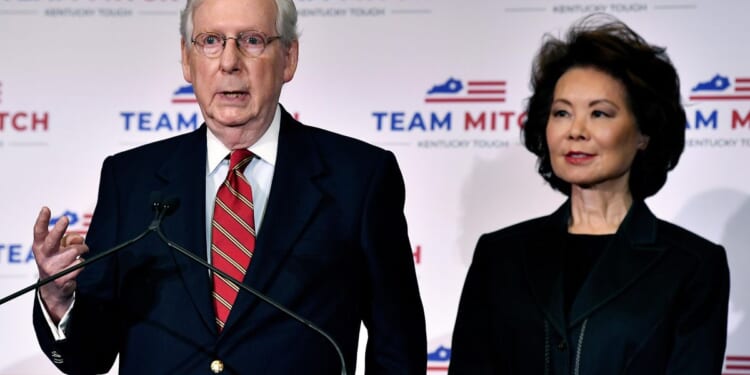
Angela Chao, chief executive of a major shipping company and former board member of the state-owned Bank of China, died in a car accident in Texas on Sunday, according to her family and multiple published reports.
Ms. Chao, 50, was head of the Foremost Group and the sister of former Transportation Secretary Elaine Chao, who is married to Senate Republican leader Mitch McConnell.
“It is with a heavy heart and deep sadness that I announce the passing of my beloved youngest daughter, Angela Chao,” her father, James S.C. Chao said in a statement. No details of the accident Feb. 10 were available.
Foremost Group, a major dry bulk shipping group with major business interests in China, did not immediately respond to a request for comment. Foremost’s global fleet is known for shipping iron ore and soybeans.
Kyle Bass, chief investment officer at the Texas-based asset management firm Hayman Capital Management, said on X that Ms. Chao died at a Texas ranch after backing her Tesla into a pond.
“Angela Chao’s death at a private Texas ranch in Blanco, County is suspicious,” Mr. Bass wrote. “Chao, almost certainly a high-ranking member of the Communist Party of China, … sat on the board of state-owned Bank of China, one of the five largest banks in China,” Mr. Bass said.
A person familiar with the incident said there is a video of car incident and Texas state police are said to be investigating. Blanco County is near Austin.
A spokesman for the Texas Department of Public Safety did not immediately respond to a request for comment.
The Bank of China said in a statement that Ms. Chao was former chair of the bank’s U.S. Risk and Management Committee.
Investigative journalist Peter Schweizer, in his 2018 book “Secret Empires,” contended that both Mr. McConnell and Elaine Chao benefited “from close ties to the Chinese military-industrial complex.” He also said the Chao family “reaped large profits thanks to the Chinese government.”
Ms. Chao joined the board of the Bank of China in 2016 and was added to the board of Chinese State Shipbuilding Corp. Holdings Ltd. part of a state-owned defense conglomerate.
China’s communist government currently is engaged in a political crackdown on foreign companies in China. Several employees of U.S. and other non-Chinese companies have faced interrogations from police and detentions allegedly over foreign spying fears.
Ms. Chao’s husband, James Breyer, has been a long-time venture capital investor in China. Mr. Breyer’s firm, Breyer Capital, joined with the Beijing-based IDG Capital Partners Co., Ltd., in 2016 to raise $1 billion to invest in Chinese companies, the Wall Street Journal reported.
Mr. Breyer, an early investor in Facebook, is also co-chairman of IDG Capital.
Last month, IDG Capital was added to the Pentagon’s updated list of Chinese military firms with operations in the United States, a list that is required under a provision of the fiscal 2021 defense authorization act.
Mr. Bass said adding the Chinese venture capital firm was the first time a private equity company was designated by the Pentagon for its role in supporting the Chinese military.
“Breyer, in January of 2024, decided to ‘take a pause’ investing into China and Chinese tech companies for at least 18 months,” Mr. Bass wrote.
The House Select Committee on the Chinese Communist Party last week released its own investigative report revealing that five U.S. venture capital firms funneled over $1.9 billion to Chinese artificial intelligence companies that support China’s human rights abuses or the military. IDG Capital Partners was not one of the venture capital firms identified in that report.
“Although we are heartbroken, my family and I have the deep conviction — nurtured by our Christian faith — that we will see Angela again,” James Chao stated.
Mr. Chao fled mainland China to Taiwan when the Nationalists lost to the Mao’s Communists in the civil war that broke out after World War II. He resettled in the United States in 1958 and later was close to Chinese Communist Party leader Jiang Zemin, a former schoolmate, who died in 2022.
Jiang was a leader of the so-called Shanghai faction of the Chinese Communist Party whose members have been targeted by current President Xi Jinping’s anti-corruption campaign.

